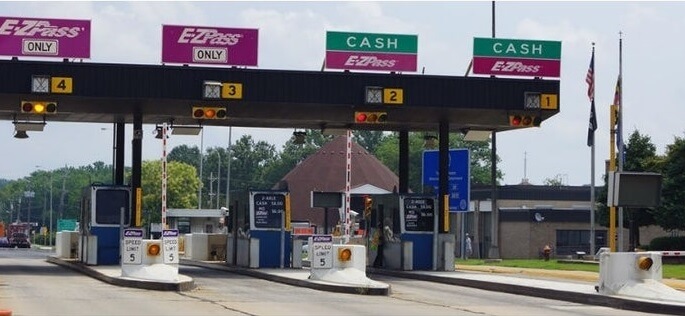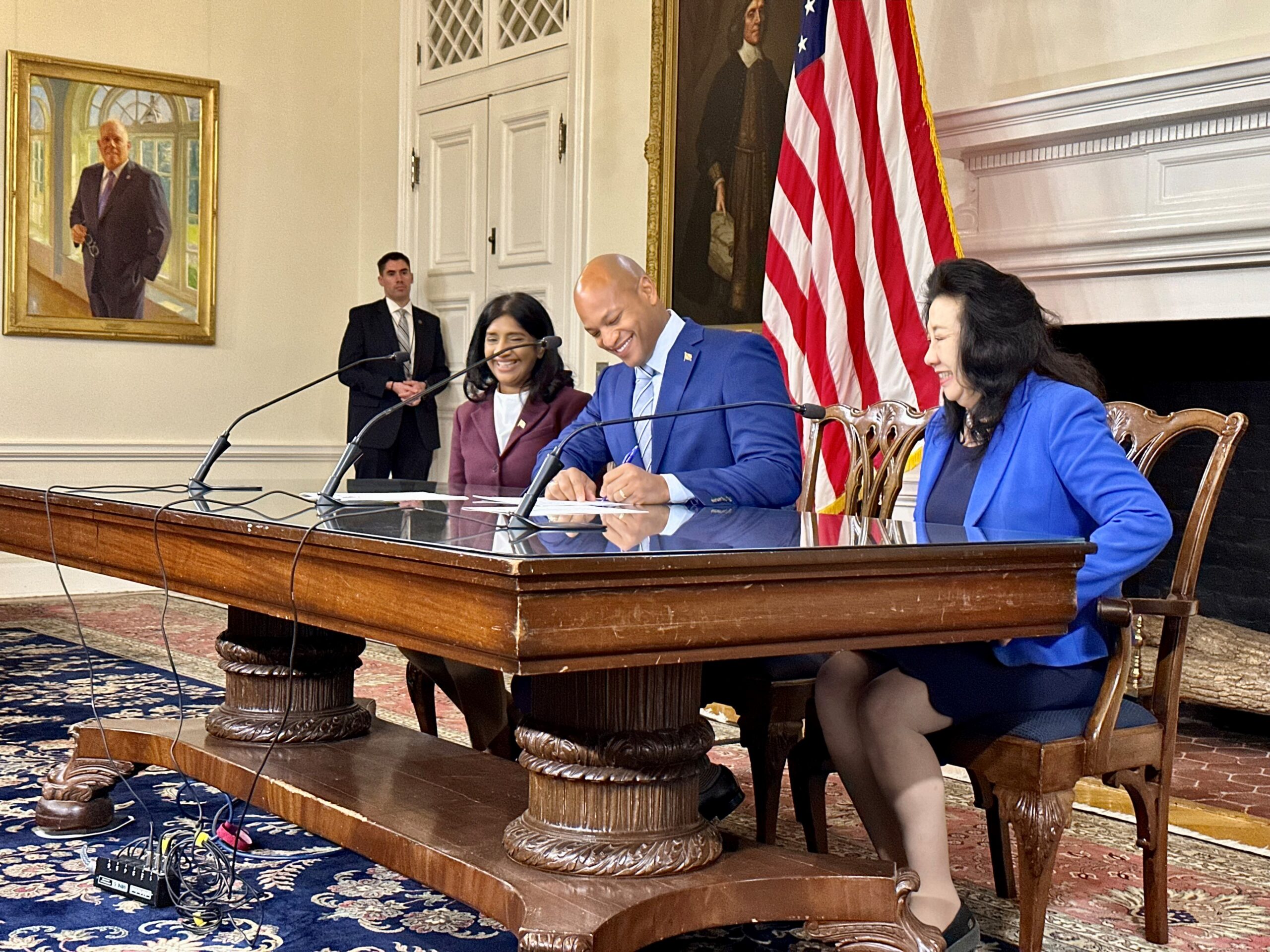Lawmakers, Consumer Advocates Concerned About Cashless Tolling

While temporary cashless tolling will help move traffic across the Bay Bridge during long-term construction work, consumer advocates and lawmakers have concerns about going cashless.
The proposed tolling system – which sends drivers a bill in the mail if they haven’t bought an E-ZPass or enrolled in a new pay-by-plate program – imposes high late fees and could disproportionately burden the elderly, renters, those who don’t speak English and transient residents, critics say.
A group of nine senators and 26 delegates submitted a three-page letter this week challenging the proposed cashless toll plan in Maryland.
Read the lawmakers’ testimony.
The letter was sent just before the state’s Thursday deadline for public comment on the tolling proposal.
The lawmakers asked the Maryland Transportation Authority to halt a transition to cashless tolling until several concerns can be addressed. They included a list of concerns that’s also been circulated by the Maryland Consumer Rights Coalition:
- Fines and fees that are disproportionate to the toll amounts due (both in the per transaction amount, and in applying fines to each transaction in a bundled mailing);
- Inadequate advance notice of expiring credit cards;
- Insufficiently clear signage at toll entrances explaining the process;
- An inefficient appeal process that requires a District Court appearance;
- A backlog of tens of thousands of contested citations awaiting court date scheduling;
- Persistent out-of-date mailing addresses attached to vehicle registrations;
- A lack of foreign language assistance on violation notices; and
- A problematic requirement that online toll payments include the registration, even for rental cars.
The lawmakers say residents have reported receiving fines for innocuous reasons, such as a change of mailing address or an expired credit card on file. In some cases, residents have had little to no time to respond to bills before late fees start to accrue.
“MDTA must stop relying on predatory and excessive video toll late fees as a revenue source,” the lawmakers wrote.
They also provided information about Massachusetts’ model for toll collection, where all state toll roads converted to all-electronic tolling in 2011.
Instead of imposing high late fees, the state focuses on in-state collection and can flag registrations for non-renewal for unpaid tolls, has reciprocity agreements for cashless tolling in nearby states, and allows 36 months to dispute E-ZPass transactions.
The lawmakers also suggested that Maryland should stop suspending tags for toll debt and offer broad amnesty for a backlog of contested video toll cases, many of which they said are more than three years old.
The transition to cashless tolling is one part of a broader toll modernization plan under consideration by the Transportation Authority.
Other aspects of the plan include discounts for early payments of video tolls to save the state billing costs and the creation of new vehicle classes to lower tolls for motorcycles and vehicles towing small trailers for watercraft or landscaping.
MDTA Executive Director James F. Ports Jr. has said the toll reductions could save drivers more than $28 million over the next five years and changes in payments could reduce traffic congestion and time spent on the roads.
The authority also recently moved to cut per-transaction late fees from $50 to $25 for the first five transactions, a move the lawmakers applauded.
The state will begin cashless tolling at the Hatem Bridge, which carries U.S. 40 traffic across the Susquehanna River in Cecil County, on Oct. 16. Cashless tolling is also expected to take effect at the Francis Scott Key Bridge, which takes Baltimore Beltway (I-695) traffic across the Patapsco River, on Oct. 30.
A final report on the overall toll modernization plan will be complete by Oct. 31. The Maryland Transportation Authority Board is expected to vote on a final recommendation in November.




 Creative Commons Attribution
Creative Commons Attribution